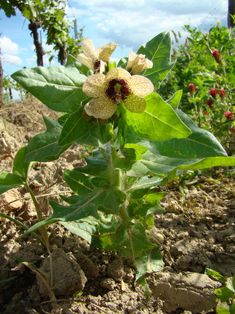Weed management ~ Agrobiodiversity ~ Use-of-potential & Risk analysis
Weed ecology
Weed ecology
Weeds may significantly reduce quantity and quality of crop yield depending on agricultural management practices and edaphoclimatic conditions. However, weeds may also be beneficial for agriculture by e.g. reducing erosion, and facilitating pest control by providing food for their natural enemies thereby reducing the need for external inputs like pesticides. This research group focuses on investigating the effects of different management practices on weed community composition, diversity, density and proportion of noxious weeds. Furthermore, we investigate the potential of weed communities which build the basis for above- and below-ground trophic networks for the provision of multiple ecosystem services including sustainable agricultural production. Currently, we analyse the consequences of farming system and cover crop management on weed communities, natural enemies and soil biota and their associated ecosystem service provision in vineyards (BiodivERsA project SECBIVIT www.secbivit.boku.ac.at). Future research will focus on the analysis of alternative biodiversity-based cropping systems for creating diverse weed communities which preserve positive effects of weeds as primary producers providing multiple ecosystem services (e.g. mitigating soil erosion, increasing carbon sequestration, facilitation natural enemies of pests) while limiting negative impacts on crop yields.
contact: Dipl.-Ing. Dr.nat.techn. Winter Silvia (location Vienna)

